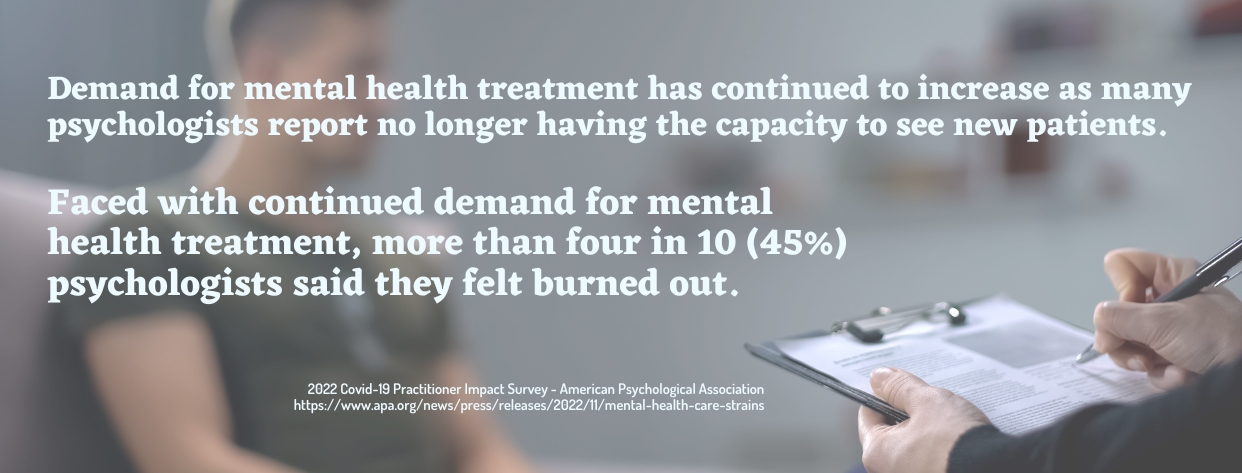Find Your Perfect School
Coming in many types, therapists are healthcare professionals who play a crucial role in the healthcare industry.
Physical and occupational therapists possess valuable skills in helping patients manage chronic conditions such as diabetes, heart disease, and arthritis. They also assist patients in recovering from illnesses and injuries through specialized treatments and exercises, ultimately improving their quality of life.
They work closely with other healthcare professionals, including doctors and nurses, to help improve patients’ overall wellness, promote healthy lifestyle habits, and suggest appropriate physical activities.
Take a look: The Best Bachelor’s in Nursing and Healthcare Online Schools and Career Guide

Other therapists do not emphasize the medical component in their work and are experts in relationships and non-physical health instead. A marriage and family therapist and mental health counseling professional provide comprehensive care to patients.
Because of their education and training, which is often at the master’s degree level as a requirement for professional private or group practice, therapists develop transferable skills to take advantage of if they want a career change.
Why Therapists Consider Career Alternatives
Today, many practice therapists may consider changing careers and leaving their current employment for these common reasons:
Personal Growth
Some marriage and family therapists may seek new job opportunities to expand their skills, work with different populations, or learn new techniques.
Work-life Balance
Family therapists may want more flexible work hours or a more supportive workplace culture to improve their work-life balance.
Relocation
A mental health counselor may look into transitioning into a different career because they are relocating to a new city or country to be with loved ones or work in a different setting.
New Challenges
A therapist may also want to apply for a new job to try new treatment modalities to expose themselves to new challenges and opportunities.
Mental Health
Mental health professionals and counselors, in particular, may want to change careers for their mental well-being. can take its toll, even on seasoned professionals! While counselors help others cope, doing it as repetitive work in the mental health field for a long time can take its toll, too!
What makes changing course from a field in therapy to new career paths and in a different mental health agency easier is that many applicable skills provide one with many other options.
Additional Information: The Most Lucrative Therapy Careers
Great Career Changes for Therapists
Here are the ten best career changes for therapists looking to take another direction.
Mental Health Clinical Director
A mental health clinical director oversees a mental health program’s or organization’s clinical operations. Some of the primary responsibilities that you need to carry out include the following:
- Supervising clinical staff, such as therapists and counselors, and ensuring they can provide clients with the highest quality of care and adhere to industry standards.
- Developing and implementing clinical procedures and policies to provide guidance to the provision of mental health services and ensure that all clinical staff is always following best practices.
- Collaborating with other organizations, professionals, and other stakeholders to ensure clients receive the highest quality of care and support.
- Leading and directing the clinical team promotes a supportive and positive work environment and facilitates proper communication and collaboration among team members.
- Creating and managing budgets to ensure that resources are appropriately allocated to meet the needs of the program and the clients.
- Ensuring that the mental health program and the organization comply with all applicable regulations, laws, and professional standards.
Nurse
Although a nurse does not have the same training or qualifications as a therapist, there may be some overlap in the techniques and skills, as well as the roles and responsibilities.
Some possible roles that a therapist turned nurse could take on include:
- A psychiatric nurse specializes in caring for patients with mental health problems. They work in psychiatric hospitals, residential treatment centers, and mental health clinics.
- A case manager helps coordinate care and support for patients with complex social and medical needs in clinics, hospitals, and community organizations.
- A nurse educator works in community organizations, healthcare organizations, or academic settings to teach and train aspiring nurses and healthcare professionals.
Personal Trainer
As a personal trainer with a background in therapy, you will still draw on your knowledge and training in psychology while helping clients achieve their fitness goals.
Your new role as a personal trainer will provide a wide range of services, including the following:
- Provide fitness assessments of clients’ current fitness levels to design customized fitness plans to help them achieve their fitness goals.
- Coach clients on nutrition to help them develop healthier eating habits.
- Guide and instruct clients on proper exercise techniques to improve their endurance, flexibility, and strength.
- Incorporate mind-body training into clients’ training programs using stress-reduction and mindfulness techniques to help them improve their mental well-being.
Ayurvedic Practitioner
If you are a private practice family therapist or mental health counselor and are thinking of becoming an Ayurvedic practitioner, you must shift your focus from Western mental health practices to ancient Indian medicine known as Ayurveda. It is a holistic approach to health and wellness based on the belief that the mind and body are interconnected and that there needs to be a balance of the three doshas (kapha, pitta, and vata) to achieve good health.
Your main responsibilities as an Ayurvedic practitioner include the following:
- Provide Ayurvedic assessments to determine clients’ current health status and identify their dosha type to determine which treatment plan to develop.
- Coach clients on proper lifestyle and diet habits based on Ayurvedic principles to help them achieve balance and harmony in their minds and bodies.
- Recommend and provide Ayurvedic herbs and supplements to improve clients’ overall health.
- Provide Ayurvedic therapies, including yoga, meditation, and massage, to maintain people’s well-being.
Life Coach
The demand for life coaches in America has increased by 33% from 2015 to 2019, according to a recent report by the International Coaching Federation (ICF). Therapy and life coaching may seem like the same professions and services, but according to Psychology.org, they are not.
Therapy is about helping people identify life experiences that limit how they show up and see themselves in the world. Life coaching, on the other hand, begins when a therapist’s job ends.
A therapist turned life coach will provide the following services.
- Help clients identify and set goals and priorities to develop an actionable plan to achieve them.
- Guide clients in identifying weaknesses and strengths so they can formulate strategies to overcome challenges in their current job and life in general.
- Provide guidance and support, and career advice to help clients set career goals and find ways to achieve them.
- Provide accountability and ongoing support to ensure clients stay on track with their goals.
Private Tutor
If you’re a therapist and choose to become a private tutor, you will focus on providing academic support and instruction to students and helping them achieve their goals. You will also provide them with personalized education and guidance.
As a private tutor, your role will revolve around the following:
- Evaluating students’ academic aptitude and determining their strengths and weaknesses.
- Providing individualized subject matter instructions to help students overcome challenging concepts and improve their academic performance on a specific subject.
- Guiding students in developing organization skills, effective study habits, and time management skills to ensure they stay focused and organized in school.
- Preparing students for standardized tests and providing support for assignments and academic examinations.
Human Resource Manager
Your experience as a counselor will be very useful in the human resource department. This is because you are equipped with the necessary skills, such as empathy, conflict resolution, and active listening, to understand and help people overcome adjustment, emotional, and personal problems that are affecting their performance in the workplace.
As a human resource manager, you will be responsible for the following:
- Understanding the complexities of human behavior and the impact of social and cultural factors on a group of people with different backgrounds and needs.
- Helping employees resolve conflicts and find the best solutions to various workplace challenges.
- Guiding employees experiencing personal issues to resolve them and be productive again.
- Keeping yourself updated with employment laws, recruitment and selection, and compensation benefits.
- Managing the talent acquisition process, including recruiting, interviewing, assessing, and hiring qualified applicants.
- Overseeing employee disciplinary meetings, investigations, and terminations.
- Ensuring compliance with local, federal, and state laws and regulations and recommending best practices.
Workplace Wellness Director
As a therapist, your primary role is to improve people’s mental health. You also work with employees with mental health problems like stress, anxiety, or depression.
If you choose to become a workplace wellness director, your main focus is creating and implementing programs that improve employees’ physical and mental well-being. You may work in civic, religious, or professional organizations, community health clinics, nonprofit organizations, or outpatient care centers, to name a few.
Other tasks include:
- Evaluating and ensuring healthcare plans comply with applicable laws and codes.
- Recommending and organizing diet and exercise plans for employees to improve their health.
- Identifying inconsistencies in your community or organization and formulating plans to respond to those needs.
- Conducting surveys to determine workers’ health needs.
- Creating wellness program budgets and assessing related costs.
- Organizing outreach and marketing efforts for future seminars and programs.
Probation and Parole Officer
Being a therapist paved the way for you to develop skills in conflict resolution, active listening, and empathy. These are very important in your role as a probation and parole officer (PPO), where you will constantly communicate and deal with others.
As a PPO, you must work with individuals released from prison or sentenced to probation to ensure they can reintegrate into society without any problem. Other responsibilities include:
- Investigating offenders for the circuit courts or the Board of Probation and Parole.
- Collecting and verifying information by interviewing and reviewing offenders’ historical records.
- Assessing offenders’ needs and risk levels to provide appropriate supervision strategies, including one-to-one counseling.
- Maintaining records of supervision activity and furnishing reports to the designated authority.
- Contacting offenders in their workplaces, homes, or places of confinement.
Psychology Researcher
Also known as experimental psychologists, psychology researcher studies a wide range of human and animal behavior. To become a researcher in psychology, you need to have a profound love for science and discover new knowledge.
Your understanding of the complexities of human behavior will be quite valuable in psychology research, where you will get to work with people of different backgrounds and needs. But you will also need in-depth knowledge and understanding of research design, data analysis, and statistics. Also, you must be adept in writing, publishing, and project management.
The tasks include the following:
- Collecting research data and applying statistical methods to analyze data and test your hypotheses.
- Identifying research questions that you want to test the outcomes.
- Designing and conducting studies, experiments, observations, and surveys to gather information to answer research questions.
- Working with other researchers to discover new ideas and approaches.
- Writing and presenting research findings in reports or articles at conferences or published in academic journals.
- Obtaining research funding by applying for grants or other sources to support the project.
- Teaching, supervising, and mentoring students or other researchers.
In Conclusion
Taking the time to weigh all your options will be truly helpful. Keep in mind that switching jobs is not always as easy as it seems. But you can do it with the correct information, proper training, and sufficient planning!
Also, see: The Highest Paying Jobs With A Trade School Education





